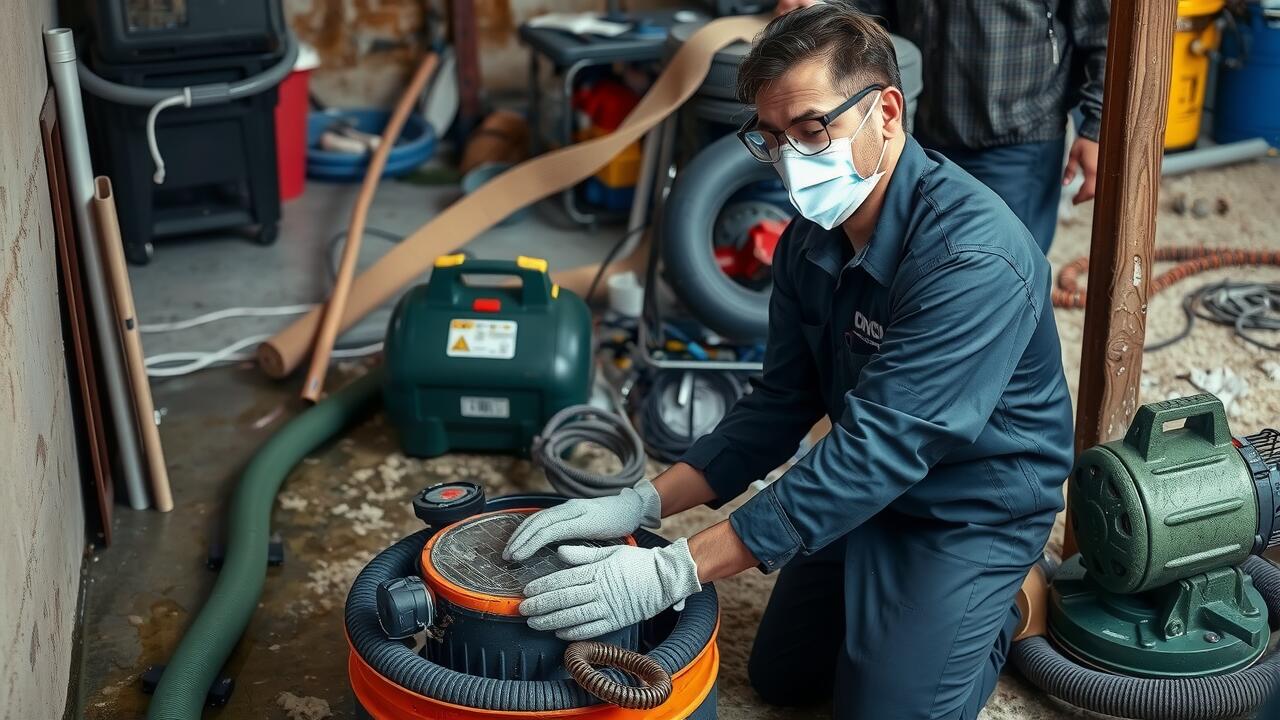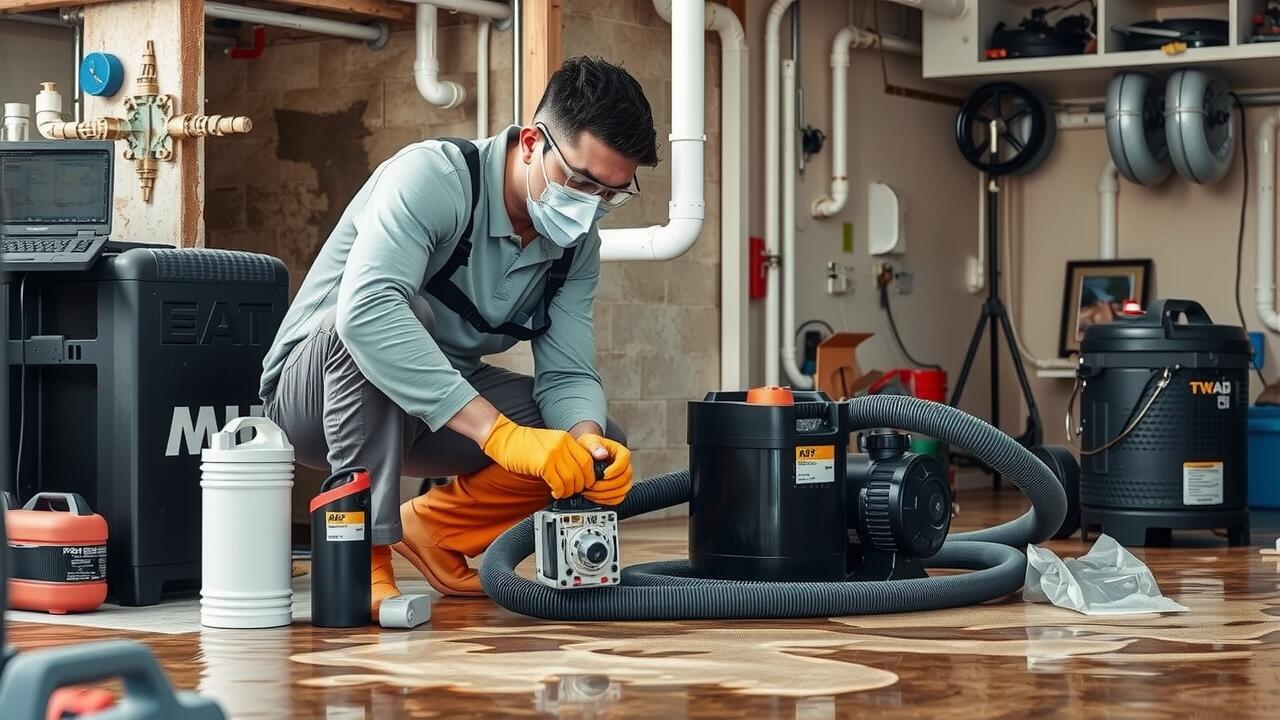
Understanding the Causes of Sewer Backups
Sewer backups can occur for a variety of reasons, often leading to significant issues in homes or businesses. One of the main causes is a blockage in the sewer line, which can result from a buildup of grease, hair, or foreign objects. Tree roots can also infiltrate the sewer system, causing obstructions that prevent waste from flowing freely. Heavy rainfall or flooding may overwhelm sewer systems, leading to backups as well. Each of these scenarios highlights the importance of understanding potential risks to sewer lines.
Recognizing the signs of a potential sewer issue can help prevent serious damage. Homeowners should be aware of slow drains, gurgling noises from plumbing fixtures, or unpleasant odors around the property. Investing in professional inspection and maintenance can mitigate problems before they escalate. For those who experience a backup, Sewage Backup Restoration in Groveport, Ohio, provides essential services to address and rectify the situation efficiently and effectively. Evaluating the plumbing system regularly can catch issues early and save property owners from widespread damage.
Common Factors Leading to Issues
Several factors can lead to sewer backups in residential areas, causing significant inconvenience and potential damage. One common issue is the presence of tree roots that invade sewer lines as they search for moisture. These roots can cause blockages, which can gradually worsen until they completely obstruct the flow of wastewater. Additionally, aging infrastructure can contribute to backups, particularly in older neighborhoods where pipes may have corroded or collapsed over time, leading to deterioration of the system.
Another frequent culprit is debris that accumulates within the plumbing system. Items such as grease, food scraps, and non-flushable items often find their way into the sewer, creating clogs that hinder proper drainage. Heavy rainfall can also exacerbate the situation if local sewer systems become overwhelmed by excess water. Homeowners experiencing issues should consider looking into services such as Sewage Backup Restoration in Groveport, Ohio, to effectively address the aftermath and help mitigate future problems.
Preventative Measures to Avoid Future Backups
Regularly scheduling inspections of your plumbing can help identify potential problems before they escalate into major issues. Professional plumbers can perform thorough checks of your sewer lines, ensuring there are no obstructions or damages that might lead to backups. Routine maintenance should also include identifying tree roots that may invade pipes and checking for any signs of corrosion or fractures in the plumbing infrastructure.
In addition to inspections, homeowners should adopt responsible practices related to what goes down the drains. Flushing only toilet paper and disposing of grease, food, or other non-biodegradable substances in the trash can significantly reduce the risk of clogs. If a backup occurs, prompt and professional sewage backup restoration in Groveport, Ohio, should be sought to mitigate damage and prevent future problems.
Regular Maintenance Tips for Homeowners
To ensure the proper functioning of your sewer system, regular maintenance is essential. Homeowners should conduct routine inspections of their plumbing and sewer connections. Look for signs of leaks or any unusual odors that may indicate underlying issues. Cleaning fixtures and drains periodically can help prevent clogs from developing. It may also be beneficial to schedule professional inspections annually to catch potential problems early.
In addition to inspections, homeowners should be proactive about maintaining their landscaping and yard drainage. Keeping gutters and downspouts clear of debris can prevent excess water from pooling near your home’s foundation. Avoid planting trees or large shrubs close to sewer lines, as their roots can infiltrate and damage the pipes. If you experience a backup, contacting professionals for Sewage Backup Restoration in Groveport, Ohio, can help address any damage and restore your system efficiently.
Cleaning Up After a Backup
After experiencing a sewer backup, immediate action is essential to minimize damage to your home and health risks. Start by ensuring everyone is safe; evacuate any individuals or pets from the area. Wear protective gear, including gloves and masks, to prevent exposure to harmful pathogens present in sewage. It’s advisable to turn off the water supply to reduce further complications and contact professionals to assess the situation. Prompt sewage cleanup is crucial, as leftover waste can lead to mold growth and structural damage.
Once the sewage has been removed, cleaning and disinfecting the affected areas become vital. Use a mixture of water and a strong disinfectant to thoroughly clean surfaces, ensuring to cover all areas where wastewater might have traveled. Pay attention to porous materials, as they may harbor contaminants even after cleaning. Seeking specialized services for Sewage Backup Restoration in Groveport, Ohio, can help restore your home effectively and ensure it is safe for habitation. Proper disposal of contaminated materials is also necessary to prevent health hazards.
Proper Cleanup Procedures
Cleaning up after a sewer backup requires careful attention to health and safety. First, it is essential to wear protective gear, including gloves, masks, and boots, to minimize exposure to harmful pathogens present in sewage. Begin by removing any standing water with a pump, if necessary, and absorbent materials like rugs or carpets should be discarded since they can harbor bacteria. Surfaces that come into contact with sewage need thorough cleaning using a solution that disinfects and deodorizes.
After initial cleanup, drying the area is vital to prevent mold growth. Open windows to promote ventilation while using fans to hasten the drying process. Once everything is dry, consider applying a sealant to porous surfaces to prevent future problems. For specialized assistance, consider reaching out to professionals who can provide expert services, such as Sewage Backup Restoration in Groveport, Ohio, ensuring a comprehensive and safe restoration of your property.
FAQS
What are the main causes of sewer backups?
Sewer backups can be caused by a variety of factors, including tree root intrusion, clogged pipes due to grease or debris, heavy rainfall leading to system overload, and damaged sewer lines from deterioration or shifts in the ground.
How can I prevent sewer backups in my home?
Preventative measures include regular maintenance of your plumbing system, avoiding flushing non-biodegradable items down the toilet, using drain screens to catch debris, and having your sewer lines inspected periodically by a professional.
What should I do immediately if my sewer backs up?
If your sewer backs up, stop using all plumbing fixtures immediately, turn off the water supply if possible, and contact a professional plumber to assess the situation and perform necessary repairs.
How can I clean up after a sewer backup?
Proper cleanup involves wearing protective gear, removing contaminated materials, disinfecting affected areas with a suitable cleaner, and ensuring proper ventilation. It’s often wise to consult professionals for safe and effective cleanup.
Is it safe to handle sewage spills on my own?
Handling sewage spills can pose health risks due to exposure to harmful bacteria and pathogens. It is generally recommended to seek professional help for cleanup to ensure safety and proper sanitation.
